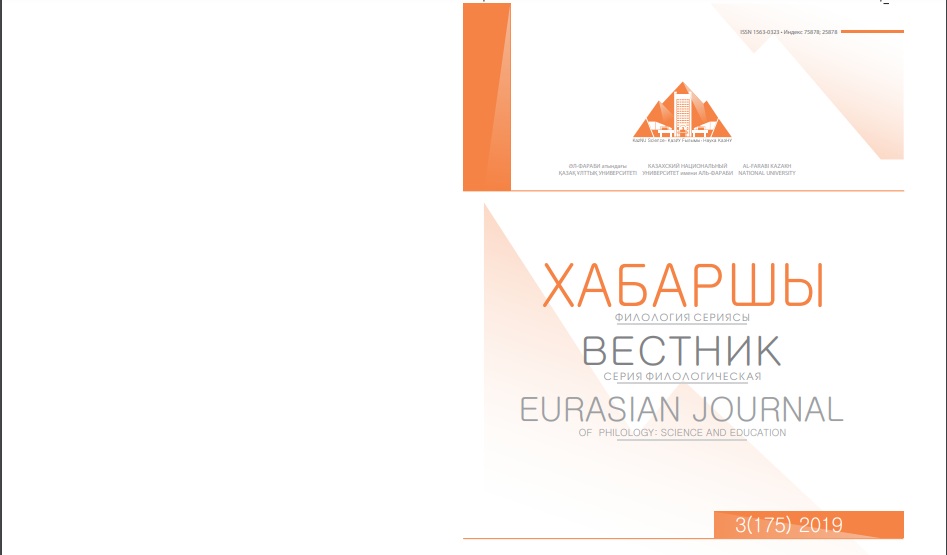Развитие интеллектуальной активности студентов-филологов при выполнении СРС
DOI:
https://doi.org/10.26577/EJPh-2019-3-ph23Аннотация
В данной статье рассматривается организация самостоятельной работы студентовфилологов как одной из ведущих форм развития интеллектуальной активности обучающихся. По современным стандартам образования самостоятельной работе студентов отводится большое место в учебном процессе, поэтому задания для данной формы мониторинга усвоения знаний должны тщательно разрабатываться и контролироваться преподавателем. В этой связи раскрывается связь между функциями головного мозга как своеобразной таксономией переработки информации и педагогической таксономией Блума, а также ее обновленной версией, успешно используемой преподавателями в учебном процессе. В статье дается краткий обзор структурного анализа и методов лингвистического исследования концептов. Рассматривается концепт «Душа». Выявляются его основные характеристики. Доказывается, что концепт Душа является динамическим концептом и отражает языческие, христианские, научные и наивные представления русского народа. Исследуются фразеологизмы с лексемой «душа», выступающими как средство языковой концептуализации окружающего мира. Исследование концептов имеет большое значение для осмысления культуры и миропонимания как одного народа, так и человечества в целом. А методика исследования концепта состоит из пяти основных этапов, что также способствует иерархическому выполнению заданий от простого к сложному, таким образом, стимулируя и развивая интеллектуальную активность студентов.






